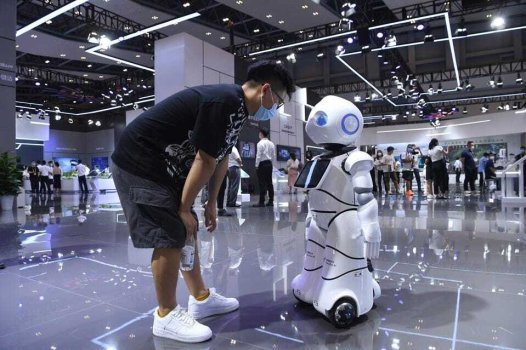Leaders face more complex decisions than ever before. For example, many must deliver new and better services for their communities while meeting sustainability and equity goals. At the same time, many need to find ways to operate and manage their budgets more efficiently. So how can these leaders make complex decisions and get them right in an increasingly tricky business landscape? The answer lies in harnessing technological tools like Artificial Intelligence (AI).
What is AI?
AI can help leaders in several different ways. It can be used to process and make decisions on large amounts of data more quickly and accurately. AI can also help identify patterns and trends that would otherwise be undetectable. This information can then be used to inform strategic decision-making, which is why AI is becoming an increasingly important tool for businesses and governments. A recent study by PwC found that 52% of companies accelerated their AI adoption plans in the last year. In addition, 86% of companies believe that AI will become a mainstream technology at their company imminently. As AI becomes more central in the business world, leaders need to understand how this technology works and how they can best integrate it into their operations.
At its simplest, AI is a computer system that can learn and work independently without human intervention. This ability makes AI a powerful tool. With AI, businesses and public agencies can automate tasks, get insights from data, and make decisions with little or no human input. Consequently, AI can be a valuable problem-solving tool for leaders across the private and public sectors, primarily through three methods.
1) Automation
One of AI’s most beneficial ways to help leaders is by automating tasks. This can free up time to focus on other essential things. For example, AI can help a city save valuable human resources by automating parking enforcement. In addition, this will help improve the accuracy of detecting violations and prevent costly mistakes. Automation can also help with things like appointment scheduling and fraud detection.
2) Insights from data
Another way AI can help leaders solve problems is by providing insights from data. With AI, businesses can gather large amounts of data and then use that data to make better decisions. For example, suppose a company is trying to decide which products to sell. In that case, AI can be used to gather data about customer buying habits and then use that data to make recommendations about which products to market.
3) Simulations
Finally, AI can help leaders solve problems by allowing them to create simulations. With AI, organizations can test out different decision scenarios and see what the potential outcomes could be. This can help leaders make better decisions by examining the consequences of their choices. For example, a city might use AI to simulate different traffic patterns to see how a new road layout would impact congestion.
Continue reading: https://www.forbes.com/sites/benjaminlaker/2022/08/24/how-leaders-are-using-ai-as-a-problem-solving-tool/?sh=2e8684e46053
What is AI?
AI can help leaders in several different ways. It can be used to process and make decisions on large amounts of data more quickly and accurately. AI can also help identify patterns and trends that would otherwise be undetectable. This information can then be used to inform strategic decision-making, which is why AI is becoming an increasingly important tool for businesses and governments. A recent study by PwC found that 52% of companies accelerated their AI adoption plans in the last year. In addition, 86% of companies believe that AI will become a mainstream technology at their company imminently. As AI becomes more central in the business world, leaders need to understand how this technology works and how they can best integrate it into their operations.
At its simplest, AI is a computer system that can learn and work independently without human intervention. This ability makes AI a powerful tool. With AI, businesses and public agencies can automate tasks, get insights from data, and make decisions with little or no human input. Consequently, AI can be a valuable problem-solving tool for leaders across the private and public sectors, primarily through three methods.
1) Automation
One of AI’s most beneficial ways to help leaders is by automating tasks. This can free up time to focus on other essential things. For example, AI can help a city save valuable human resources by automating parking enforcement. In addition, this will help improve the accuracy of detecting violations and prevent costly mistakes. Automation can also help with things like appointment scheduling and fraud detection.
2) Insights from data
Another way AI can help leaders solve problems is by providing insights from data. With AI, businesses can gather large amounts of data and then use that data to make better decisions. For example, suppose a company is trying to decide which products to sell. In that case, AI can be used to gather data about customer buying habits and then use that data to make recommendations about which products to market.
3) Simulations
Finally, AI can help leaders solve problems by allowing them to create simulations. With AI, organizations can test out different decision scenarios and see what the potential outcomes could be. This can help leaders make better decisions by examining the consequences of their choices. For example, a city might use AI to simulate different traffic patterns to see how a new road layout would impact congestion.
Continue reading: https://www.forbes.com/sites/benjaminlaker/2022/08/24/how-leaders-are-using-ai-as-a-problem-solving-tool/?sh=2e8684e46053

